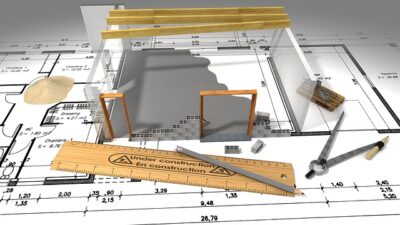Are you thinking about buying an old house?
Buying an old house has a host of benefits, one of which is the fact that they come at a more affordable price point. They may also have a throwback charm that offers a nostalgic aesthetic that you love. But purchasing an old home also comes with its own set of risks that you need to be aware of.
Are you looking for tips on how to navigate these risks when buying an old house? If so, you’re in the right place. Below, we’ve developed an in-depth guide on things to consider when buying an old house.
Let’s get started!
1. Check the Foundation
Ensure the foundation is structurally sound and can support the load of the building when buying an old home. Hire a professional to inspect the foundation to look for signs of deterioration, such as crumbling mortar, cracked walls, or other signs of weakening.
It is also important to make sure the foundation is up-to-code for the area and approved by building officials. The condition of the foundation can save or cost you thousands, so make sure you know all the details before making the buy.
2. Check for Pest Infestations
Check for pest infestations and damage when buying an old house. Whether they be termites, roaches, or other common household pests, their presence can be a sign of the lack of upkeep of a house and can lead to large repair bills in the future to fix the damage caused by the pest infestation.
Conduct a thorough inspection to look for signs of pest activity, including droppings, nests, and tunnels, and also do a visual inspection for other signs of damage.
3. Research the Home’s History
It’s best to ask neighbors about the home’s history and any issues they may know about as well. You may also want to check with the city or county and review property records to determine if there have been any building code violations or other complaints.
Be sure to have a home inspection to identify any issue that needs your attention. Doing these things will help you make an informed decision when considering purchasing an old home.
4. Examine the Roof for Issues
Before buying an old house, it is important to have an inspection of the roof to determine the best course of action. Even an old house that looks good from the outside may have weak or rotten sections.
Checking the roof for leaks or holes is also important. Look for any signs of rust, rot, or water damage. Seek a professional opinion to ensure proper roof materials and ventilation.
5. Assess the Electrical Wiring and Plumbing
Pay attention to electrical wiring and plumbing when purchasing an old house. Assess electrical wiring to ensure outlets are properly grounded and installed. You also need to ensure the wiring is suitable for the home’s power needs.
For plumbing, you need to ensure all the old pipes and fixtures are operational and functioning. It is also vital to determine that the polybutylene plumbing is in good condition. This is to prevent any potential water problems.
Consider These Things When Buying an Old House
Buying an old house may seem daunting and exciting, but with all the steps, potential issues, and expenses to consider, it is important to feel informed and ready before making the decision.
Do your due diligence, consult specialists, and consider all your options before taking the plunge into homeownership. Contact a trusted real estate agent today to get started!
Did you find this article helpful? Check out the rest of our blogs!









